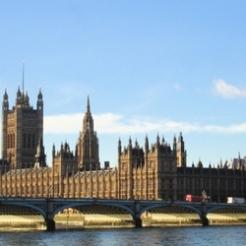Justice Secretary Chris Grayling has proposed a new bill which he says will offer extra protection to volunteers. Charity lawyer Sarah Bull questions whether the new rules are necessary.
Following the mixed reception to his legal aid reforms, and clearly in search of some positive headlines, Chris Grayling has proposed a new Bill to “curb the 'elf and safety… culture that holds back so much of our society”. But are the problems it seeks to address any more real than the elves Grayling references?
According to Grayling, the Social Action, Responsibility and Heroism Bill (Sarah) is designed to protect “the responsible employer who puts in place proper training for staff, who has sensible safety procedures, and tries to do the right thing. And then someone injures themselves doing something stupid or something that no reasonable person would ever have expected to be a risk.”
Presenting us with this sorry scene, alongside other such hardy tabloid perennials as the hamstrung firefighter, unable to help out because of “'elf and safety”, or the person who fears that they cannot sweep snow from the pavement because of the risk of a lawsuit from someone who then slips on the ice, Grayling claims to be doing something that hardly anyone could disagree with: protecting those who take reasonable care from being pursued for negligence.
Unfortunately for the minister, the problems that he describes do not exist. The definition of negligence is a failure to take reasonable care. If an employer does everything that Grayling describes, they cannot be successfully sued. Special considerations already exist for firefighters and other emergency personnel, who often have to take momentous decisions in a split second. Small employers are under less onerous burdens than larger ones, and their size is explicitly to be taken into account in negligence cases. The “elf and safety culture” that Grayling describes is, in legal terms at least, non-existent, and the British courts have been forthright in avoiding opening the floodgates to American levels of negligence litigation.
In his article on Conservative Home, Grayling seems to admit this, saying “Of course the courts do apply common sense, and very often throw out the most absurd cases…The best way to describe the proposed Bill is that it will serve as a signpost from Parliament to the courts… a powerful message…”
This might be laudable, but it is rendered pointless by the fact that in 2006, the Compensation Act was passed, with exactly the same aim, and wording that is similar to what it may be presumed Mr Grayling will propose. Either that Act worked, in which case Sarah is unnecessary, or it did not, in which case it is difficult to see how Sarah will be any different. In any event, the practical impact of this Bill is likely to be small, if it is noticeable at all.
If there is a culture of overcautiousness in respect of health and safety, it is exaggerated media stories, encouraged by unhelpful government rhetoric such as this, that causes it. The Health and Safety Executive, that often demonised regulator of all things 'elf and safety, has an entire section of its website devoted to debunking health and safety myths.
From the banning of conkers (myth!) to trapeze artists being required to wear hard hats (myth!) these stories are a gross misrepresentation of health and safety law, which is already framed in the language of reasonableness.
Perhaps if Mr Grayling spent more time promoting the reality of health and safety law, and less repeating unfounded urban legends, what “legalistic culture” there is would have even less impact than it does now.
Sarah Bull is a senior associate at Bates Wells Braithwaite








